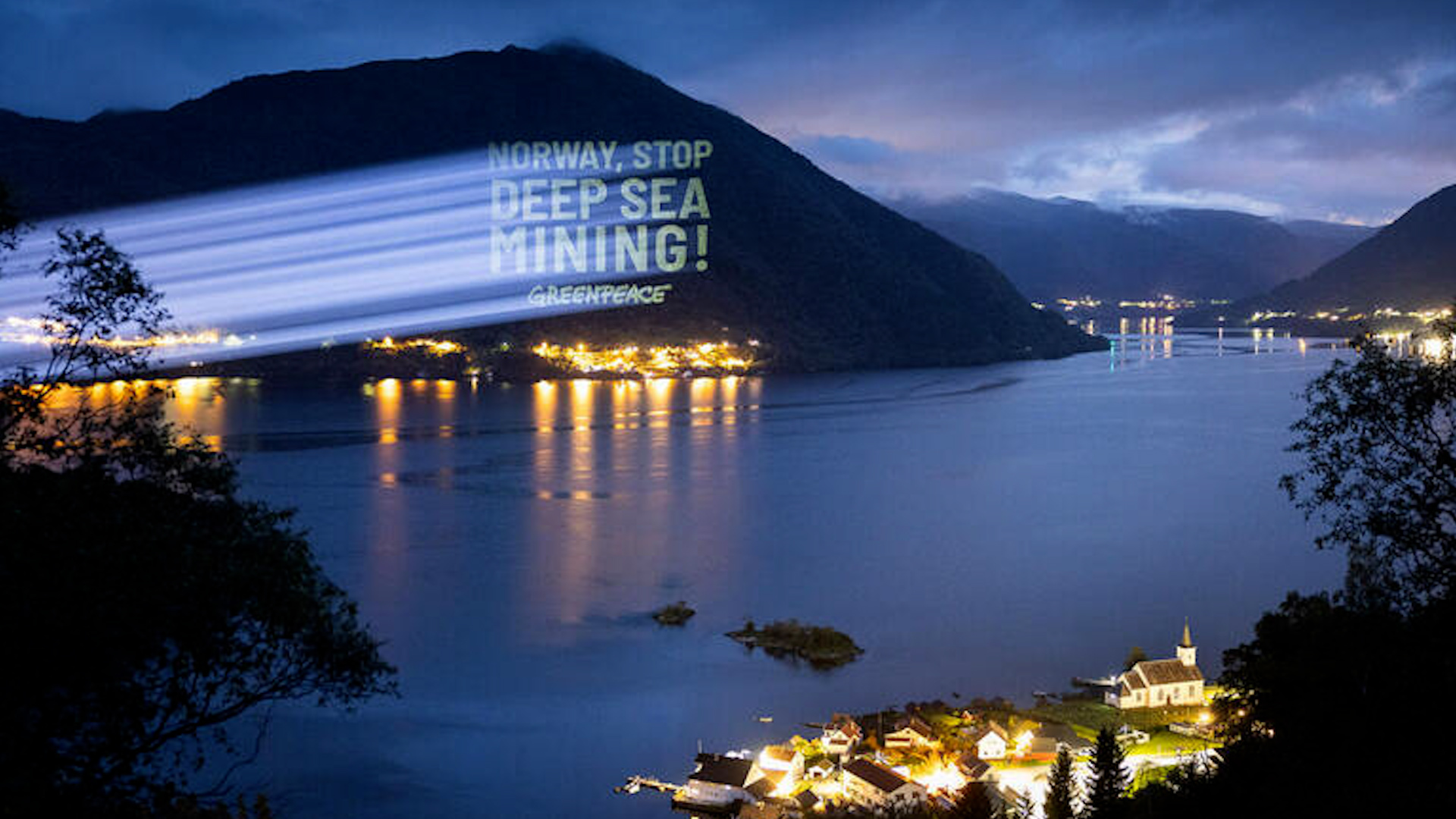
[JACK AYLMER]
POWERING THE CLEAN ENERGY TRANSITION MIGHT COME WITH AN UNEXPECTED CASUALTY: WHALES.
POLYMETALLIC NODULES LOCATED ON THE OCEAN FLOOR CONTAIN A NUMBER OF RESOURCES VITAL FOR MAKING RENEWABLE TECH RUN.
BUT, A GROUP OF RESEARCHERS WITH GREENPEACE RECENTLY CARRIED OUT A STUDY TO FIND OUT IF EXTRACTING THESE SO-CALLED BATTERIES IN A ROCK MIGHT AFFECT NEARBY MARINE MAMMALS.
THEY FOUND THE PROCESS MAY WELL DISTURB THE HABITATS SPERM WHALES, ORCAS, DOLPHINS, AND MORE.
THIS STUDY WAS CONDUCTED AT A PROPOSED DEEP-SEA MINING AREA OFF THE COAST OF NORWAY-
WHICH EARLIER THIS YEAR BECAME ONE OF THE FIRST NATIONS IN THE WORLD TO APPROVE THE MINING PRACTICE.
THE NORWEGIAN MINISTER FOR PETROLEUM AND ENERGY SAID AT THE TIME HE BELIEVES RESOURCES NEEDED FOR THE GREEN TRANSITION COULD BE EXTRACTED SUSTAINABLY FROM THEIR WATERS.
MINING COMPANIES MUST FIRST SUBMIT PROPOSALS TO THE GOVERNMENT BEFORE DRILLING OPERATIONS ARE ALLOWED TO BEGIN.
HOWEVER, GREENPEACE AND OTHER ENVIRONMENTAL AGENCIES WARN DOING SO COULD BRING HARMFUL NOISE AND LIGHT POLLUTION TO THE AREA-
POTENTIALLY DAMAGING THE MANY SPECIES THAT CALL THESE WATERS HOME.
THE NORWAY INSTITUTE OF MARINE RESEARCH ESTIMATES ANOTHER FIVE TO 10 YEARS OF RESEARCH INTO IMPACTS ON SPECIES IS NEEDED BEFORE THIS INDUSTRY CAN MOVE FORWARD.
TIME THAT THESE SCIENTISTS MAY ULTIMATELY NOT RECEIVE.
FOR MORE STORIES ABOUT THE DEBATE OVER DEEP SEA MINING, DOWNLOAD THE STRAIGHT ARROW NEWS APP AND SIGN UP FOR ALERTS FROM ME – JACK AYLMER.











